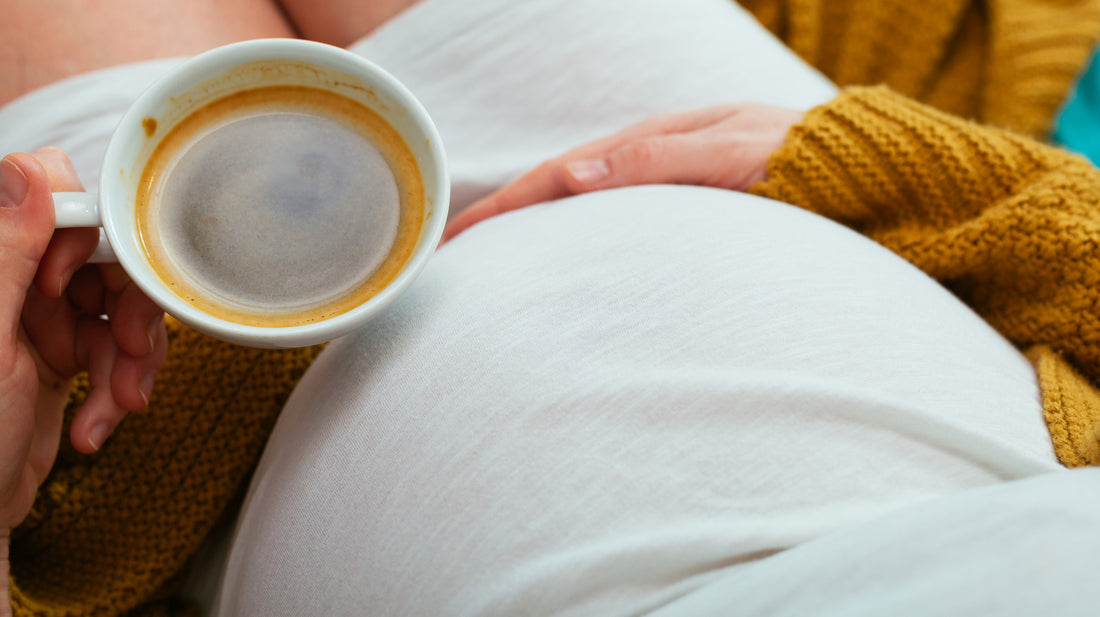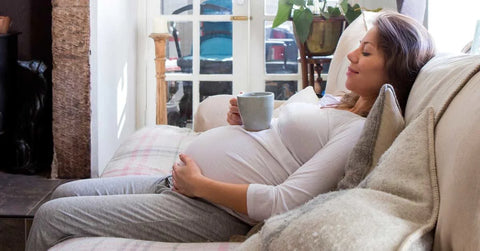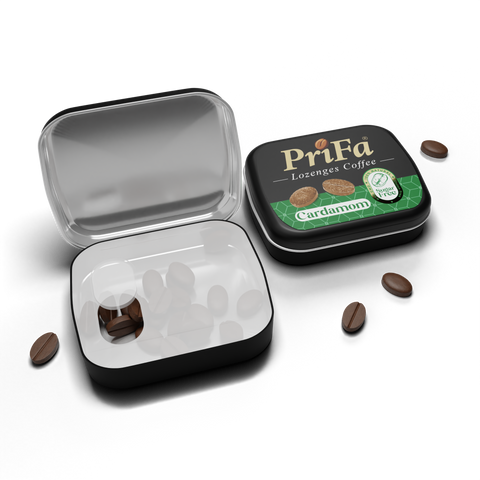
Pregnancy and Caffeine – Effects and Safe Amount During Pregnancy
Share
Numerous expectant mothers often inquire about the safety of caffeine intake during pregnancy, particularly those who have a fondness for and take pleasure in their coffee.
In this Prifaco blog article, we will delve into the connection between pregnancy and caffeine, examine how it affects the developing fetus, emphasize acceptable consumption levels, and offer essential guidance for pregnant women to follow. Keep reading to learn more.
Tips for consuming caffeine during pregnancy
Those who enjoy consuming beverages or foods containing caffeine should consider the following recommendations:
- It is advisable to reduce caffeine consumption as much as possible or even completely abstain from it during pregnancy.
- If you find it essential to consume caffeine, establish a daily limit and ensure you do not exceed it.
- Read labels and make sure you are aware of the caffeine content in products you consume, such as coffee, tea, and soft drinks.
- Consult your healthcare provider for personalized guidance to ensure that the quantity you consume is safe for your health and pregnancy.
- Utilize healthy caffeine alternatives for alertness and energy.
- Avoid caffeine intake in the evening to maintain a peaceful and restful sleep.
- Monitor the effects of caffeine consumption on your body during pregnancy to adjust your intake according to your body's response.
Please note that these are recommendations and should be discussed with a healthcare professional for personalized advice during pregnancy.

How does caffeine affect a pregnancy?
Consuming caffeine in large quantities during pregnancy leads to some risks to the pregnancy and the fetus, including:
1. Increased Risk of Miscarriage
Some studies suggest that consuming large amounts of caffeine may elevate the risk of miscarriage.
2. Low Birth Weight
Excessive caffeine intake can lead to low birth weight in newborns at the time of delivery.
3. Negative Impact on Fetal Brain
Certain studies indicate that caffeine may have detrimental effects on fetal growth and brain development in some cases.
4. Elevated Blood Pressure and Heart Rate
Caffeine can lead to an increase in blood pressure and heart rate in pregnant women, potentially having a negative impact on the pregnancy.

Caffeine safe during pregnancy
The safe amount of caffeine can vary based on medical and health recommendations, depending on individual circumstances. However, as a general guideline, pregnant women are advised not to exceed the consumption of 200 milligrams of caffeine per day. Therefore, it is important to monitor caffeine sources to estimate the quantity.
Approximate amounts of caffeine in some foods and drinks
Below we mention estimates of the amount of caffeine in some of its sources. To adjust the daily dose and not exceed it:
|
Material |
Quantity |
The amount of caffeine |
|
Coffee |
240 ml |
95 mg |
|
Black tea |
240 ml |
40- 70 mg |
|
Green tea |
240 ml |
25- 45 mg |
|
Soft drinks |
355 ml |
30- 40 mg |
|
Energy Drinks |
250 ml |
80 mg |
|
Chocolate |
Regular piece |
25 mg |
These quantities are approximate estimates, and the caffeine content in products can differ based on the brand and preparation method.
Caffeine alternatives for pregnant women
There are several natural caffeine alternatives that pregnant women can turn to in order to maintain alertness and energy. Here are some of them:
- Drinking an adequate amount of water.
- Consuming fresh fruit juices.
- Caffeine-free green tea.
- Dates.
- Nuts and seeds.
- Getting good sleep and sufficient rest.

Additionally, pregnant women may opt for Prifa coffee tablets if they wish to enjoy the taste of coffee without having to acquire a large amount of caffeine. Prifa coffee tablets contain only 10-30 milligrams of caffeine per tablet.
They are available in three flavors (cardamom, latte, espresso) and are made from natural ingredients that support body energy, with no known side effects.
Order them now.
It is essential to select alternatives that suit your individual preferences and cater to your personal needs, but do not forget to consult your healthcare provider to ensure that they are safe and suitable during the pregnancy period.
Questions and answers
How much caffeine can a pregnant woman have a day?
According to medical guidelines, pregnant women or those planning to become pregnant should not exceed a daily caffeine intake of 200 milligrams.
How much is 200mg of caffeine?
200 milligrams of caffeine is roughly equivalent to two cups of coffee or three cups of black tea, assuming each cup has a volume of approximately 240 milliliters.
Does caffeine affect baby brain?
Some cases have shown delayed brain growth in the fetus when there is an increase in the caffeine levels in the mother's bloodstream. Therefore, it is advisable to limit its consumption as much as possible.

Today, you can get Prifa coffee tablets, so don't hesitate. Enjoy good health and a comfortable pregnancy!
If you need more information about Prifa tablets, feel free to contact us at +01 23456789.
Edited by: Prifaco©
